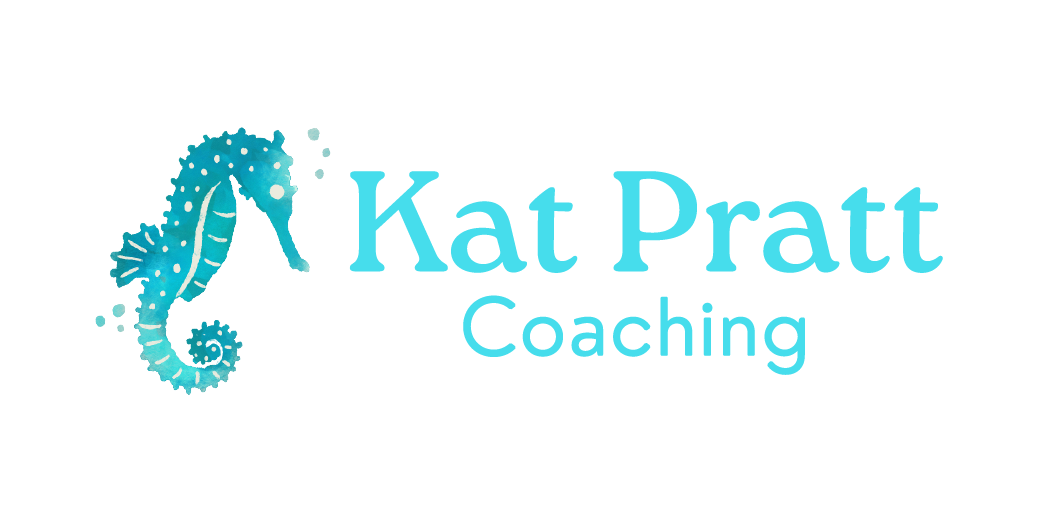Unlocking Your Subconscious: How Hypnotherapy Can Heal Your Relationship with Food and Beyond
As someone who's walked the walk (from sneaking frosting as a kid to becoming a certified hypnotherapist), I can tell you firsthand how this powerful practice has been a game-changer for me and my clients. Let's explore what hypnotherapy really is, how it ties into shadow work and emotional healing, and why it might just be the missing piece in your own journey to self-acceptance and freedom.
My Personal Journey: From Food Shame to Subconscious Healing
If you've read my story about hiding behind the kitchen door with a tub of Betty Crocker frosting at age 5 or 6, you know my relationship with food has been complicated for decades. By my teenage years, I was cycling through restriction and overeating, dieting obsessively, and hating my body. I tried everything from living off sugar-free Jello (in my defense I was 15 and stupid), to low fat, to the vegan raw food diet that put me in hospital, but nothing stuck. Nothing made a long-term difference. Why? Because I wasn't addressing the root: the emotional trauma buried deep in my subconscious.
Fast-forward to my 40s, with kids of my own struggling too, and I knew I had to break the cycle. I had been using Bach Flower Remedies since I was in my early 20s, but I decided it was time to learn more about what other holistic techniques could offer. I studied Emotional Freedom Technique (EFT or tapping), Reiki, Bach Flower Remedies, and yes, hypnotherapy. Becoming a certified hypnotherapist in 2024 was a turning point. It allowed me to access those hidden parts of the mind where shame, self-sabotage, and old beliefs live. The same "shadow" aspects I talk about in my shadow work coaching.
Hypnotherapy isn't about swinging watches or losing control (that's Hollywood nonsense!). It's a gentle, guided state of deep relaxation where we can reprogram limiting beliefs at the subconscious level. For me, it helped uncover why I turned to food for comfort: it was tied to childhood feelings of not being "enough," amplified by my neurodivergent traits like sensory sensitivities and difficulties with emotional dysregulation. Once I addressed those subconscious scripts, the urge to binge or restrict started to fade. I didn't hate myself into change; I loved myself through it, aligning with that beautiful quote from Shunryu Suzuki: "You are perfect as you are, and there is room for change."
What Is Hypnotherapy, and How Does It Work?
At its core, hypnotherapy is a therapeutic technique that uses hypnosis to create a trance-like state of focused attention and heightened suggestibility. In this state, your conscious mind takes a backseat, allowing direct access to the subconscious—where 95% of our thoughts, habits, and emotions operate on autopilot.
Think of it like updating the software on your phone. Your subconscious is running old programs (like "food equals shame" or "I only deserve love if I'm thin") that were installed in childhood or through trauma. Hypnotherapy helps rewrite those programs with positive, empowering ones. Every session is unique. I use the information that your unconscious mind brought to the surface to create suggestions based on your unique story and goals, whether it's body image issues, wanting to stop a bad habit, or neurodivergent challenges like mine.
In my practice, I combine hypnotherapy with other tools from my certifications, like shadow work (certified in 2025) and EFT. Shadow work, as I explored in my recent piece on embracing your "messy bits," is about shining a light on hidden desires and patterns. Hypnotherapy supercharges this by going straight to the source. For example, if you're like Sarah from my shadow work examples, and find yourself rebelling with late-night snacks, hypnotherapy can help you uncover the subconscious thrill of that "naughty" freedom and replace it with healthier ways to feel empowered.
Real-Life Wins: Hypnotherapy in Action for Food Issues and Emotional Trauma
Let's get real with some examples (inspired by common client experiences, keeping things confidential, of course). Take "Lisa", a client who came to me exhausted from yo-yo dieting, much like my own history. She regained weight every time, and reported feeling like a failure. Her experience was in keeping with those stats that I’ve mentioned before where 90-97% of dieters regain it all. Through hypnotherapy, we accessed her subconscious beliefs: a deep-seated fear that being "small" meant being invisible, rooted in childhood neglect.
Through a combination of coaching and hypnotherapy we reframed that fear into self-acceptance. Lisa started viewing food as nourishment, not punishment. The shame? It has dissolved. She even incorporated shadow work by embracing the "thrill" of indulgence without guilt, leading to natural, sustainable changes. No more diets, just radical self-love.
Another client, "Mia" struggled with Avoidant/Restrictive Food Intake Disorder (ARFID) and found that certain foods and textures triggered extreme anxiety, leading to a combination of restrictive and emotional eating. Hypnotherapy helped her identify and release some limiting beliefs she had regarding specific foods, while tapping reinforced the suggestions made during hypnotherapy.
Why Hypnotherapy Fits Perfectly into Holistic Healing (and Why It's Not About Fixing You)
From my site here at katpratt.com, you know my mission is empowering women through private coaching, hypnotherapy sessions, and my membership community with live classes and resources. Hypnotherapy aligns perfectly because it's not about "fixing" anyone. You're not broken! It's about releasing stuck emotions, letting go of limiting beliefs, healing trauma, and embracing your whole self.
You're worth healing. When you are struggling and feeling stuck, it can be hard to ask for help. You might feel like no one cares enough to help or that you aren’t worth helping. Remember that strong people ask for help, whether that's reaching out to a friend or booking a professional session.

